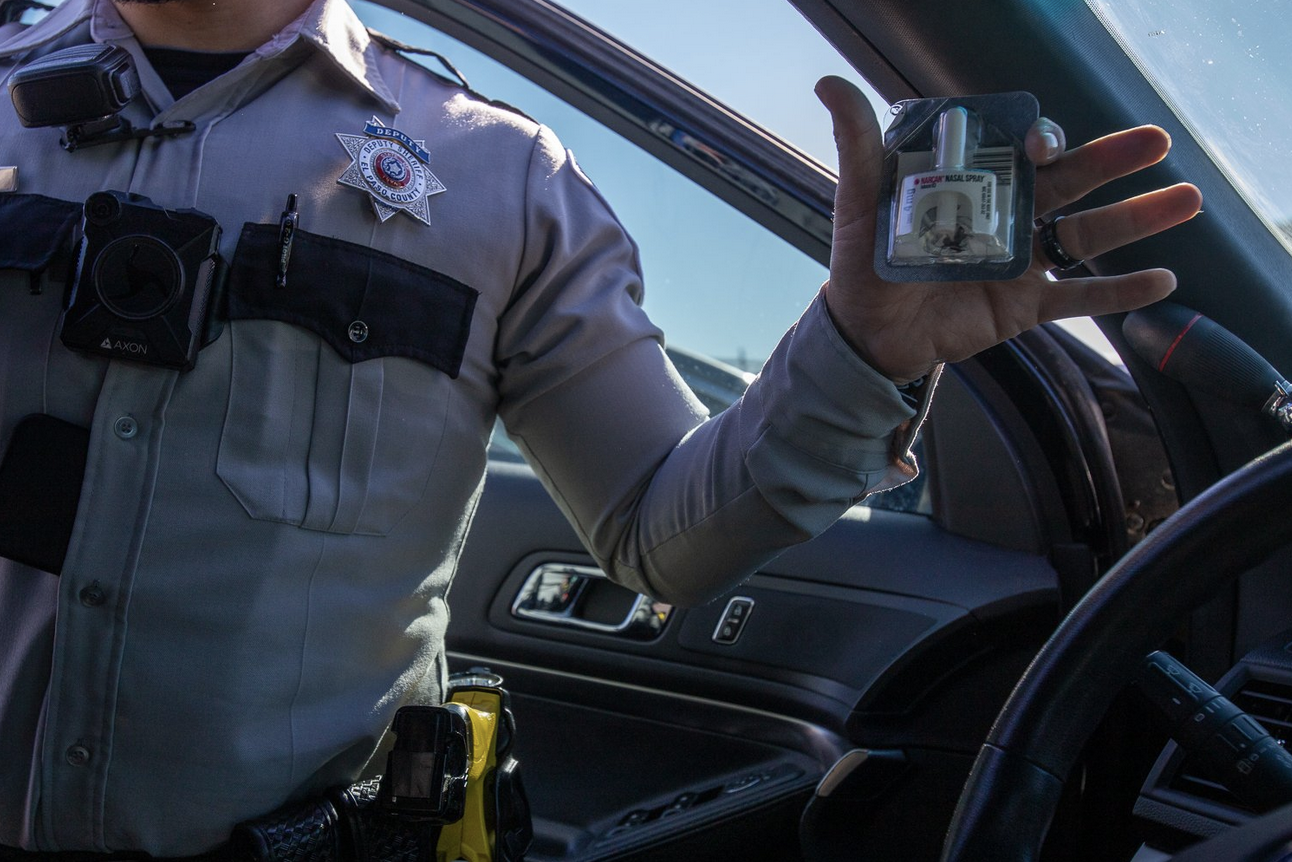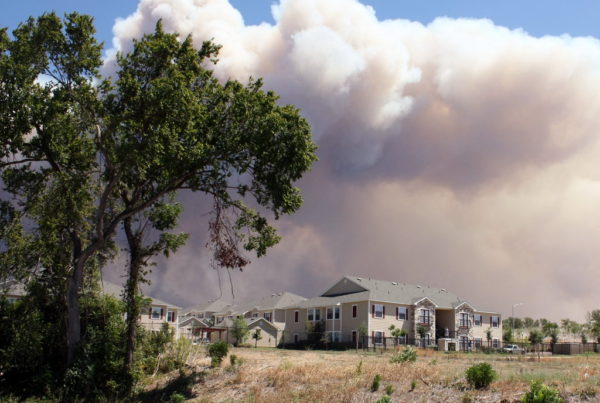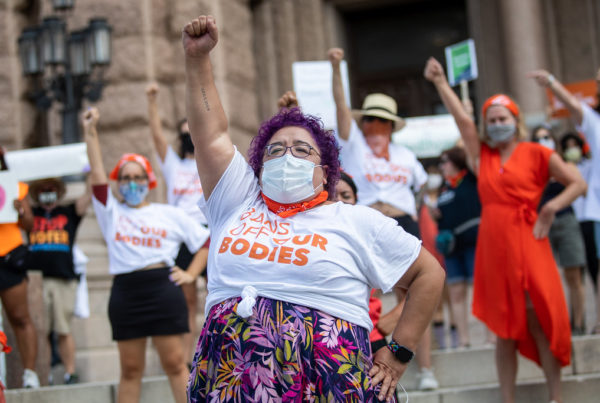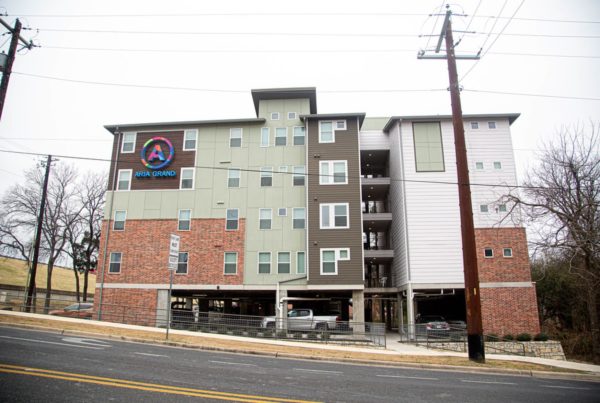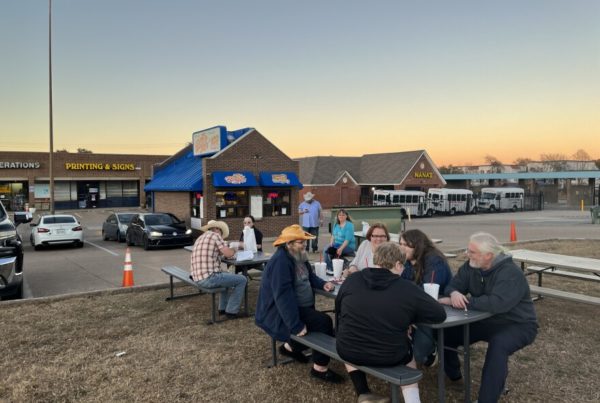Opioid-related deaths are a national problem. But in El Paso, the numbers are stark. A big reason for this is the growing prevalence of the synthetic opioid fentanyl. According to data El Paso Matters obtained from the El Paso County Medical Examiner, the number of fentanyl-related deaths has gone up almost every year from 2015 – when there were four deaths – to 2021, when there were 64.
A growing number of law enforcement agencies carry Narcan, known by its generic name naloxone. But El Paso Matters assistant editor René Kladzyk found that the El Paso Police Department has just 85 Narcan kits available for its over 1,000 officers.
“So if someone’s overdosing and police are first on the scene, the odds are good that they don’t have Narcan, and that they’re going to probably be waiting while someone is overdosing until the fire department gets there,” Kladzyk told Texas Standard.
Kladzyk explores the challenges of preventing overdose deaths in a three-part series for El Paso Matters and shared some of her findings with Texas Standard. Listen to the audio interview with Kladzyk above or read the transcript below.
This transcript has been edited lightly for clarity.
Texas Standard: For those who are unfamiliar with Narcan, or naloxone, can you tell us a little bit about the medication at the center of your story that police in El Paso want more access to?
René Kladzyk: Narcan – the generic name of the drug is naloxone – is a medication that actually reverses the effects of an opioid overdose, and it has no effect whatsoever on someone who hasn’t taken opioids, so it’s quite safe. It’s pretty easy to administer. In the course of reporting this series, a police officer actually handed me Narcan, and was like, “Just push it to see how easy it is,” and it’s literally, you just put it in someone’s nostril and push a button.
But the El Paso Police Department does not currently require that all their officers carry it. I learned they have 85 Narcan kits total for the department, and there are over a thousand officers. So, you know, if someone’s overdosing and police are first on the scene, the odds are good that they don’t have Narcan, and that they’re going to probably be waiting while someone’s overdosing until the fire department gets there.
Why does the El Paso Police Department have such limited access to Narcan kits?
Nationwide and in Texas there has been a trend of more and more law enforcement personnel carrying Narcan. But it’s not uniform, and I tried to figure out exactly how many police departments do require that their officers carry Narcan, and it’s kind of tricky to find that out. But but what we do know is that it’s increasingly becoming more and more common, for obvious reasons.
I went to Tempe, Arizona, and looked at an innovative Narcan program that’s being used by the Tempe Police Department, and through doing that, and talking to the officer who trains fellow police officers and how to use Narcan, he said that there’s a lot of different types of resistance beyond just stereotypes about people who use drugs.
Also, police officers may have fears about liability or the risk of using Narcan because they maybe don’t know that there are laws protecting people from any criminal or civil liability if they use Narcan on someone. And that’s the case in both Arizona and Texas. So there is a law on the books that there’s no liability if you use Narcan on somebody.
Have you heard from police officers about not having as much of this resource as they wish they did?
I obtained hundreds of internal emails from the El Paso Police Department over the years. And what I found is that officers have been asking for more Narcan for years. I also found out through talking to a local opioid crisis center, that El Paso Police Department officers have been on their own accord, on their free time, walking into the opioid crisis center and asking for Narcan because they weren’t being provided it by the police department. So clearly the desire is there, it’s just a question of whether the people in positions of power to implement a more robust policy or make it a requirement and expand access to Narcan, whether they see it as a priority.
What’s your sense of where things are going in El Paso when it comes to opioid overdoses?
Sadly, I don’t think that things are going to be trending much better in the years to come, when it comes to opioid overdose deaths. You know, it’s hitting every segment of society. I mean, here in El Paso, among the people who died by fentanyl last year, the youngest was a 16-year-old boy and the oldest was a 68-year-old woman. It’s not just isolated corners of society, especially when you have fentanyl being laced into party drugs.
It’s not just people who are in the throes of addiction who are dying by overdose. So as we continue to see overdose deaths skyrocket, this is going to continue to be an issue that local communities, local police departments, city councils all have to grapple with.


